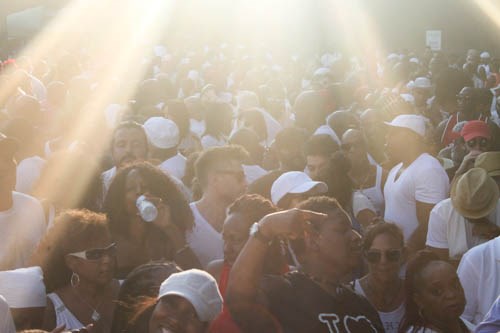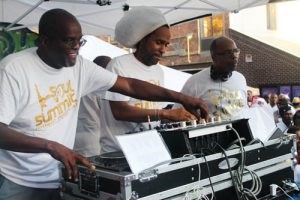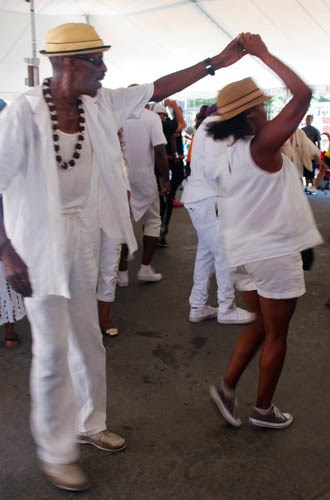 On Sunday, thousands of people gathered in Restoration Plaza in Bed-Stuy to sway, jump, salsa and shimmy for one of the last installments of this year's Soul Summit dance party. For five hours, participants rocked to old and new house music, sometimes pairing up with each other for spins and twirls or taking a turn showing off their best movies inside spontaneous dance circles.
On Sunday, thousands of people gathered in Restoration Plaza in Bed-Stuy to sway, jump, salsa and shimmy for one of the last installments of this year's Soul Summit dance party. For five hours, participants rocked to old and new house music, sometimes pairing up with each other for spins and twirls or taking a turn showing off their best movies inside spontaneous dance circles.
The group was nearly as diverse as Brooklyn. Young men danced with older ladies and children spun around cheered on by adults. Dancers of all backgrounds shared the floor. Old time Brooklynites smiled and spun alongside out-of-state visitors.

From the deejay booth, three men took turns spinning old and new house music. Among them was Brooklyn-native and Soul Summit founder, Tabu Butler. A longtime deejay, he started the parties in 2001 with friends in an effort to resurrect a favorite childhood tradition. "We all grew up in the era of parties in the park," he recalled. "...[it's] where you'd hear the latest music."
Soul Summit started originally in Cuyler Gore park and moved to Ft. Greene park a few years later, where it is held once a month on Sundays, from July-September. By six o'clock, the crowd had doubled and the dancing had spilled out of the tent onto the plaza. Grammy-nominated singer Melba Moore took the stage just before dusk to a thunderous applause.
Butler said that the event has evolved over the years to include tourists and newcomers alongside locals. On Sunday, there were dancers present from as far as Westchester, New Jersey and Queens. And with the rise of music-discovery apps like Spotify and Pandora, most people don't come to hear the latest music. But Butler says the community element is what matters most.
"Technology has thought of everything," he said. "But that element of getting together, it's still a driving force for people."




